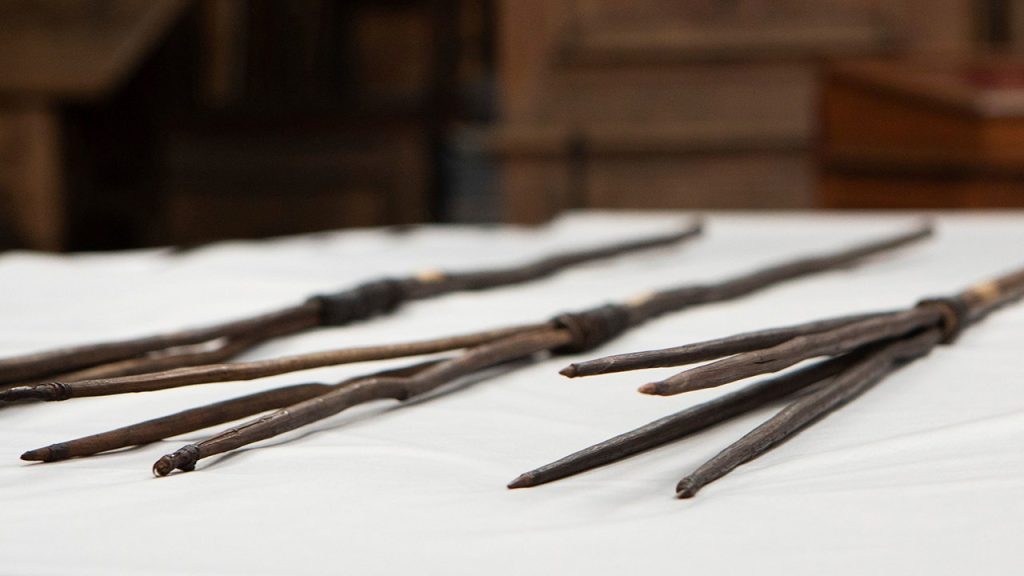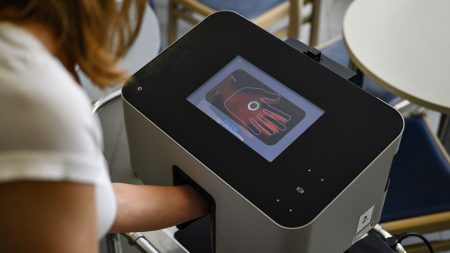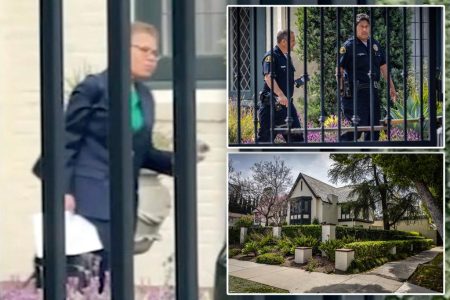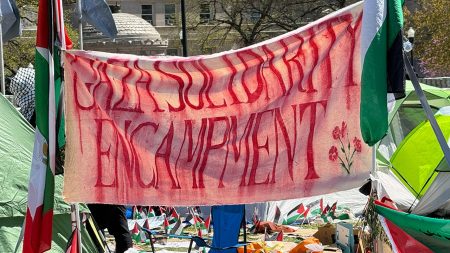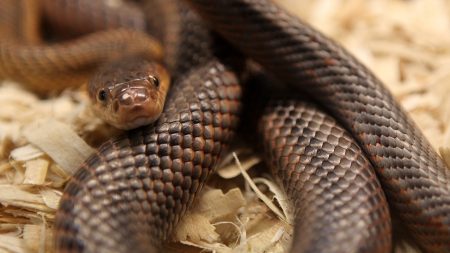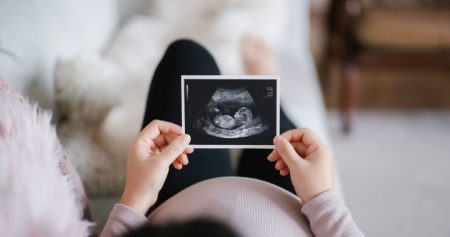Four Aboriginal spears taken by Captain James Cook to England over 250 years ago were returned to Australia’s Indigenous community at a ceremony in Cambridge University. These artifacts were all that remained of around 40 spears taken by Cook and botanist Joseph Banks during their first contact with the Indigenous people of Botany Bay in April 1770. Originally presented to Trinity College, Cambridge by the 4th Earl of Sandwich, the spears have been housed at the university’s Museum of Archaeology and Anthropology since the early 20th century. The decision to return the spears was praised as a significant step towards reconciliation and understanding of the shared history between Britain and Australia.
Nicholas Thomas, the director of Cambridge’s archaeology museum, highlighted the importance of the spears as the first British-collected artifacts from any part of Australia that remain. He noted that they represent the beginnings of a history of misunderstanding and conflict between the Indigenous people and Europeans. The Gujaga Foundation, which leads cultural and research programs in the La Perouse Aboriginal community, described the return of the spears as a “momentous occasion.” The artifacts mark the first point of British contact with Aboriginal Australia and will be put on permanent display at the site from which they were taken 250 years ago.
The spears were taken by members of Cook’s expedition from an unoccupied Aboriginal campsite, according to the National Museum of Australia’s website. A diary entry by Joseph Banks mentioned throwing gifts into a house and taking all the spears found around the area as they left. Ray Ingrey, the director of the Gujaga Foundation, acknowledged that the spears were taken without permission. The artifacts’ return is seen as a step towards acknowledging and reconciling past wrongs committed against Indigenous communities by European explorers and colonizers.
Sally Davies, the head of Trinity College, emphasized that returning the spears was the right decision in light of reviewing the complex legacies of the British empire, especially within the institution’s collections. The repatriation request for the spears was granted following a campaign, signaling a growing awareness and accountability for historical injustices. The return of the spears serves as a symbol of acknowledging the impact of colonization and the importance of recognizing and honoring Indigenous cultures and heritage. The decision reflects a broader movement towards restitution and restoring dignity to communities affected by colonialism.
The spears are set to be displayed at a new visitor center to be constructed at Kurnell, Kamay, where they were originally taken from. This serves as a fitting location for the spears to be exhibited to the public, allowing visitors to learn about the history and significance of the artifacts within their original context. By returning the spears to their place of origin, the Indigenous community hopes to reclaim and celebrate their cultural heritage and history. The repatriation of the spears represents a milestone in the ongoing efforts to address and rectify the injustices of the past, fostering mutual respect and understanding between Indigenous peoples and the broader community.





